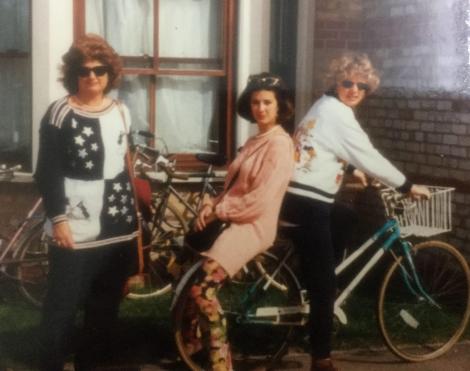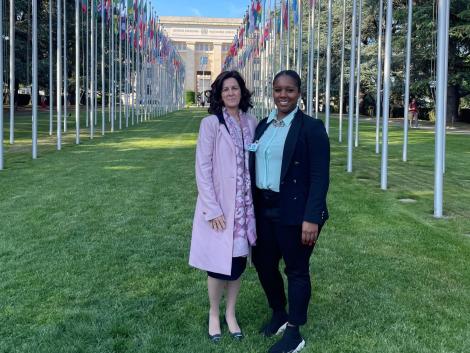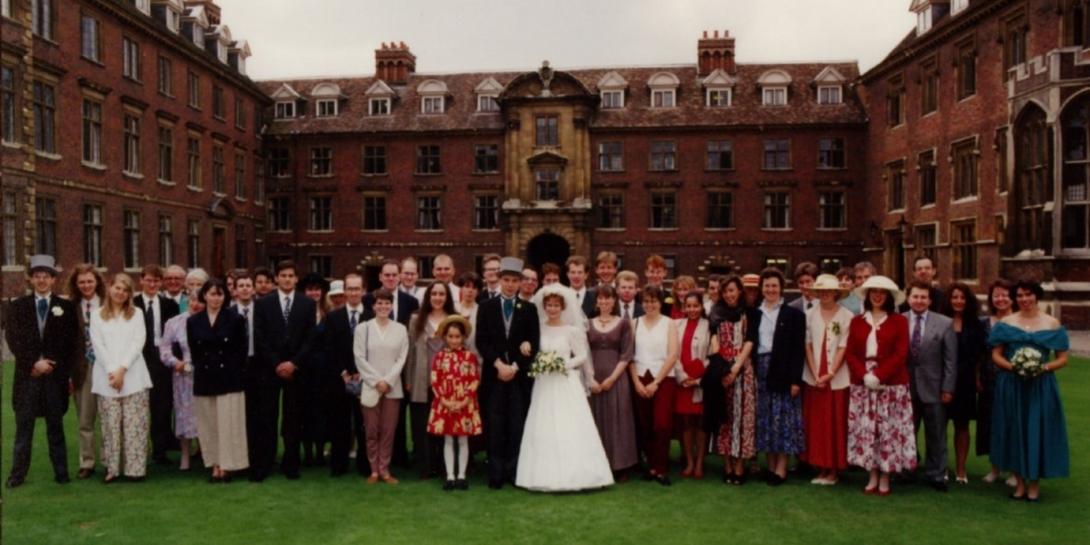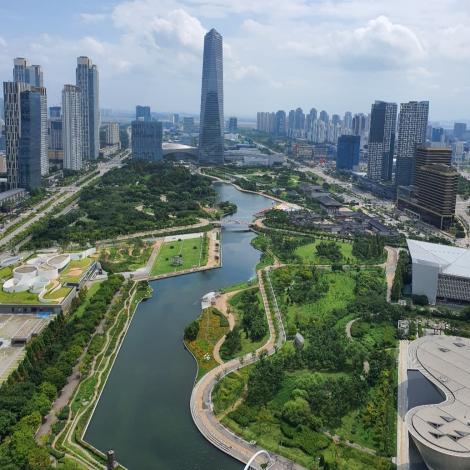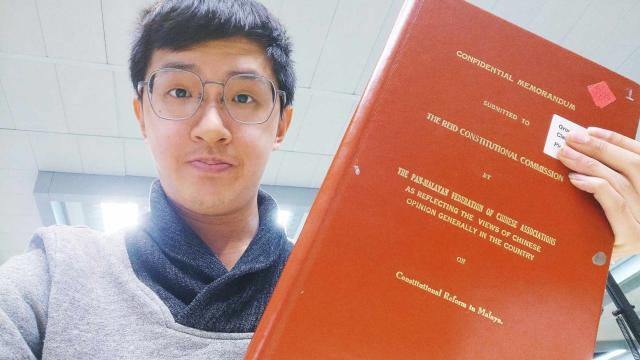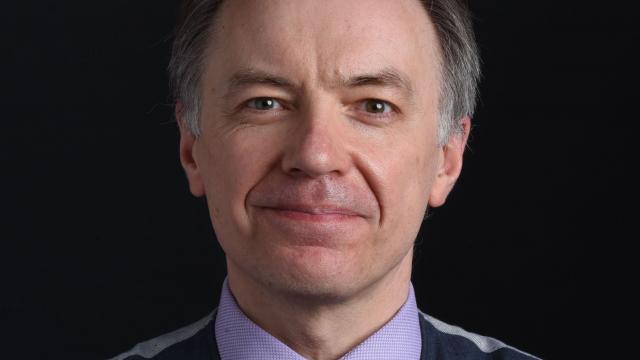
Earlier this year, St Catharine’s published an online article celebrating some of our students, Fellows and alumni who have supported the United Nations (UN) and its activities.
As the College takes steps towards achieving net zero emissions by 2040, and in the wake of the 2023 UN Climate Change Conference (known as COP 28) in Dubai, it seemed fitting to focus on examples of alumni who are supporting the UN to accelerate action to tackle the climate crisis and protect the planet.
Professor Daniella Tilbury (1990, Environmental Studies; Honorary Fellow 2018)
Professor Tilbury completed the first PhD on sustainability in Europe at St Catharine’s. While her interest in sustainability was often dismissed as a fad in the early 1990s, she traces it to her childhood growing up in a closed frontier situation in Gibraltar within close proximity to Francoist Spain, and sharing scarce land with local wildlife (40% of the land area has since been protected as part of the Gibraltar Nature Reserve).
“At a time when grassroots movements were making headlines, I recognised from a young age that governments have the power to implement change at speed and on a scale that these movements can rarely achieve. I wanted to understand the power structures that determine the success of sustainable practices, with a particular interest in education as a tool for change.”
While at St Catharine’s, Professor Tilbury’s published her first academic piece in an international journal in 1992. This caught the attention of colleagues at United Nations Educational, Scientific and Cultural Organization (UNESCO) Asia Pacific who invited her to present her doctoral findings at an international meeting in Brisbane and later formally published her research about frameworks for reorienting higher education for sustainable development. Since then, she has gained significant insights into the workings of the UN and its contributions to sustainability.
Professor Tilbury has worked primarily with the UN Environment Programme (UNEP), United Nations University and UNESCO including numerous field offices in Africa, Asia, Latin America and Europe over the last 30 years. informed the development of UNESCO's global monitoring and evaluation assessments. More recently, she has been commissioned to undertake expert reviews and sector evaluations of higher education for sustainability, which served to guide policy and practice. She is currently the UK government’s focal point to the UN Economic Commission for Europe on matters of sustainability and education.
“I’ve seen how the UN provides the backbone to multi-lateral collaboration and international diplomacy on all matters related to the environment and sustainable development. With 193 member states, almost every country in the world is part of the UN, which gives it enormous legitimacy. It is the only truly global institution – so despite its blind spots and limitations it is the intergovernmental body that can establish treaties, agreements and alliances to address issues that transcend national borders. Global governance and the role of the UN will become even more important over time, but it will also need to be more inclusive and representative for it to be effective.”
When we spoke with Professor Tilbury, she was preparing to join delegates at COP 28 having participated at previous conferences, including those held in Copenhagen (COP 15) Marrakech (COP 22), Paris (COP 21), Madrid (COP 25) and Glasgow (COP 26).
“COP 26 was perhaps the most intense as I convened the presidential event hosted by the UK and Italian governments on Education for Climate Change. This inter-ministerial event drew attention to the role of education and learning in changing professional cultures and institutional mindsets for sustainability – an agenda seen as a priority for all member states as we address the root causes of the climate crisis. During COP 28, I am looking forward to supporting UNESCO and the UK on matters relating to transitioning the education sector towards sustainability.
“Although the global effort to cut emissions continues to be slow and painful, we are no longer talking about abstract concepts or disputing the science. In the Paris Agreement there is global commitment and a tangible framework that can be used to fight climate change. If individual leaders and policies fail, the UN and its multi-lateral meetings like this COP and others to come will help to keep the ambition alive and push for the pace of implementation to become more ambitious.”
Professor Tilbury regularly returns to Cambridge and to St Catharine’s, and is passionate about the positive impact that the College, and the wider Cambridge, community can achieve:
“The University is now awake to importance of this agenda. I certainly value the conversations that I have had with the other Fellows of St Catharine’s, particularly the scientists who have been working for decades to gather evidence about climate change and its impact. Now we have evidence of the scale of the crisis, we need social scientists and researchers from a whole range of disciplines to help us unpick why we think and act in certain ways, identify solutions and deliver changes effectively. If you have an interest in addressing the climate crisis, engage in interdisciplinary dialogues and develop capabilities that transcend your core area of expertise. We must break away from the silo mentality and learn to engage across specialist areas. This is essential if we are to broker solutions that may not be visible or possible from a singular disciplinary perspective. Change can only happen if we share our talents and take responsibility for a better future.’
Dr Steven Foister (1988, Materials Science and Metallurgy)
After graduating from St Catharine’s and completing a PhD at the University of Surrey, Dr Foister has had a successful career in procurement. He started out with project-based work for the private sector in the UK and overseas, before serving a number of public sector organisations.
His first major role with the UN family came about in 2014 when he joined the International Atomic Energy Agency (IAEA) in Vienna as Section Head for Field Procurement. Created in 1957, the IAEA has a mandate to work with member states to promote safe, secure and peaceful technologies – ‘atoms for peace and development’. The IAEA is best known for ensuring the safety of nuclear materials, and also supports countries with cooperation projects aligned to the UN Sustainable Development Goals.
“The IAEA was looking for someone honest and reliable with a strong scientific and commercial background, to support highly technical areas of spend and address donors’ concerns about whether money was being spent appropriately. I was fortunate that somebody from a previous international project recommended me for the role.”
Procurement is about obtaining value for money, showing sound custody of funding, and delivering responsibly. It is where policy meets practice, and procurement often leads on issues such as combatting fraud and human trafficking, reducing pollution, and improving sustainability.
Dr Foister has gone on to other roles in the UK and the UN family, and is currently supporting the Green Climate Fund (GCF). Established in 2010 within the framework of the UN Framework Convention on Climate Change, the GCF assists countries to reduce and mitigate the impacts of climate change. It has so far been pledged over $50 billion from member states, with more being announced at COP 28.
“I’ve come on board with the GCF to help speed up getting the funding to the projects. It’s still early days with my new team, but I can already see how GCF is making a difference. With an estimated 400 000 extra deaths a year already caused by climate change, and this situation set to worsen every year, speed is of the essence. Having previously worked in cancer therapy access projects, I hope to bring the same immediacy to the life-saving projects that are funded by the GCF.
“Working across any UN agency or team requires a sustained effort and patience. We’re building consensus across member states on complex issues so it is important to know when to work slowly and steadily, versus when to seize an opportunity. I try to celebrate every success and build on it, and the Serenity Prayer is often a handy point of reference!”
He is keen to emphasise the career paths open to members of the St Catharine’s community who may be interested in working for the UN.
“The need for international cooperation has never been greater – whether your focus is climate change, security, migration: or just enjoying an international working environment. A UN career may be worth considering for many in the Catz community. Perhaps you will develop your expertise elsewhere, build links with UN organisations when you can, and join the UN family later in your career, as I did? If there are any alumni experienced in Oracle Financials and keen to help fight climate change, then please say hello!
“Or the more common route for the UN support functions is to join straight from university, through an internship. I am happy to discuss this with any interested students, and to recommend procurement – at the interface between legal, technical, commercial, and practical. This area of expertise is a great place to gain ‘undersight’ across an organisation, and is valued across the UN family – so once you are known and respected in one part of the UN, then it is possible to move around within it.
“Interns are poorly paid. Depending on the organisation, this can be from $0 to $1000 a month, and you should budget on being an intern for two years before finding a staff position. Find an organisation you would like to work with, check their policies on interns, and apply directly to them.
“Another route is the UN Junior Professional Officer programme, kind of analogous to the Civil Service Fast Stream. They require your government to fund them, and the UK only support a handful. It’s very difficult to get in through this route, but a great opportunity if your government will fund you.”
